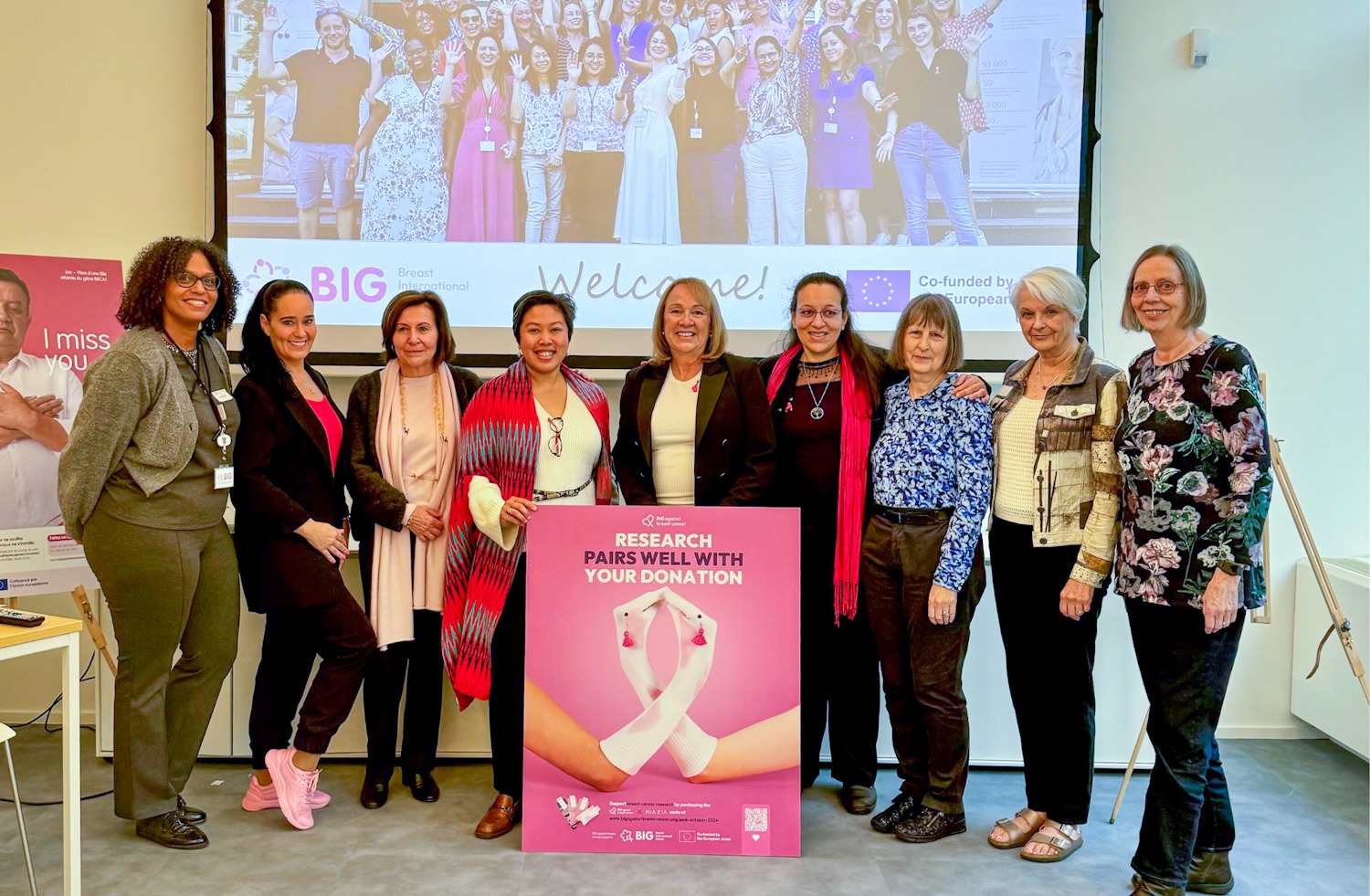Cancer knows no rest. Neither does BIG — the Breast International Group. Founded more than 25 years ago by Professors Martine Piccart and Aron Goldhirsch, BIG has grown into the largest global network of academic research groups dedicated to finding better treatments and, ultimately, cures for breast cancer.
A Success Story: From Two to a Truly BIG Network

The BIG story began with two visionary medical oncologists, Prof. Martine Piccart and Prof. Aron Goldhirsch. As they found that too many academics worked in isolation on similar trials across Europe, they aimed to address this fragmentation in breast cancer research.
Their vision was simple yet powerful: collaboration beats competition. By joining forces, researchers could share insights, access larger datasets, accelerate progress, and ultimately bring hope to patients faster. Unlike so many ideas that remain just intentions, these two pioneers turned vision into action.
In the mid-1990s, they began uniting European research groups within one BIG goal: to accelerate and deepen understanding of breast cancer, speed up the development of effective treatments, and increase the chances of finding cures.
Today, more than 25 years later, BIG has expanded far beyond Europe. The network now brings together over 50 like-minded research groups in 70 countries across 6 continents, with 10,000 breast cancer specialists working toward the same objective. This truly global alliance fuels hope— especially when you consider that 1 in 8 women and 1 in 800 men will face a breast cancer diagnosis during their lifetime.
BIG’s research is supported in part by its philanthropy unit, known as BIG against breast cancer – which raises funds for BIG’s purely academic breast cancer trials and research programmes.
25 Years of BIG Achievements
BIG celebrated its 25th anniversary in 2024, marking a quarter-century of breakthroughs. Since its creation, more than 60 studies have been conducted, including several landmark trials that have transformed clinical practice and impacted countless patients’ lives.
More than 100,000 patients worldwide have participated in BIG trials. Among the successes:
- The HERA trial helped transform the early HER-2 positive breast cancer from a highly aggressive cancer to a treatable condition, significantly improving disease-free survival and long-term outcomes.
- The APHINITY trial advanced the standard of care further by showing the benefits of combining pertuzumab and trastuzumab (monoclonal antibodies) with chemotherapy.

The HERA trial helped put trastuzumab on the map and, together with APHINITY, has changed clinical practice. Both studies recruited at high speed across continents and showed the advantages of being able to call upon large numbers of academic breast cancer researchers within the BIG network
By pooling efforts globally, BIG can also answer questions about rare sub-types of breast cancer - where no single research group would have had enough patients to get the answers.
Cancer and Motherhood: A Reason for Hope
One of BIG’s most popular trials, POSITIVE, has brought reassurance to young women with hormone-responsive breast cancer. Although requiring long-term follow-up, its initial results showed that their hormone treatment can safely be paused to allow them to have a baby – without raising the risk of cancer recurrence. For many young women, this is life-changing news. As breast cancer among younger patients continues to rise globally, the trial offers hope not just for survival, but for living life fully.
The Candriam Institute: Supporting a BIG Vision
At Candriam, cancer research is more than a cause – it’s a commitment. The fight against cancer is one of the four pillars of the philanthropic efforts of the Candriam Institute for Sustainable Development. Since 2018, the Institute has donated €4.1 million to numerous entities engaged in the fight against cancer, including €816,000 in 2024 alone.
Our 2024 donation to BIG specifically supported the work related to 30 patients in BIG’s AURORA study, helping researchers understand how metastatic breast cancer evolves and why different patients respond differently to treatment. This knowledge is a vital step toward developing more personalised and effective therapies.
Research Saves Lives. Let’s Help Research.
More on BIG
